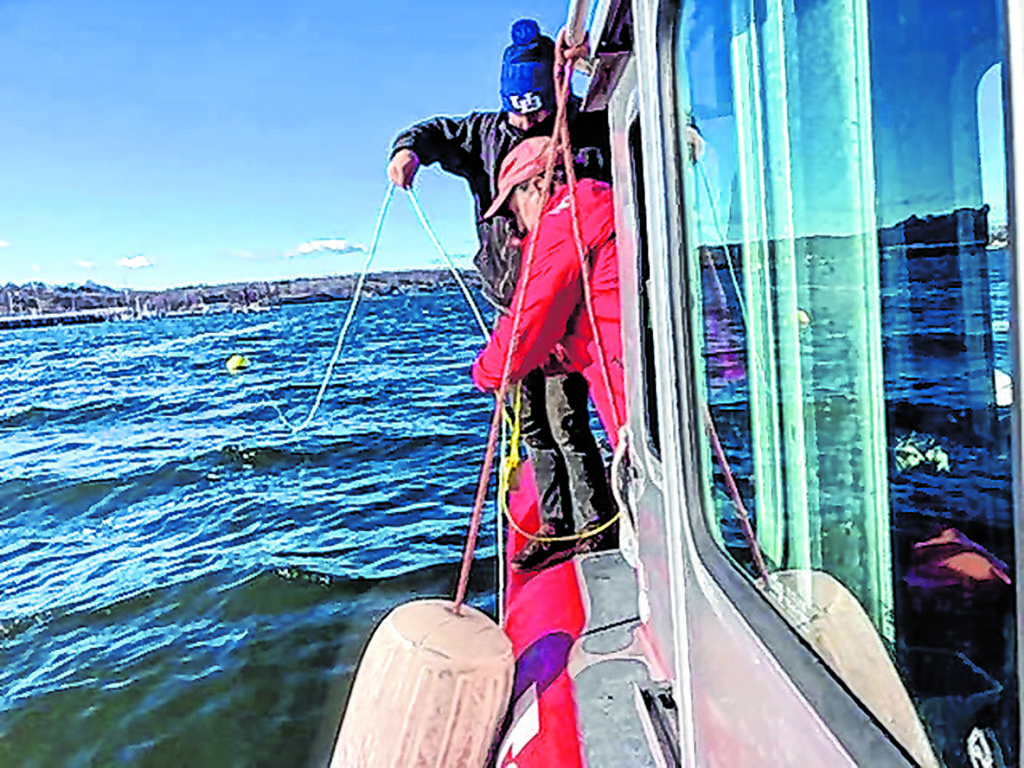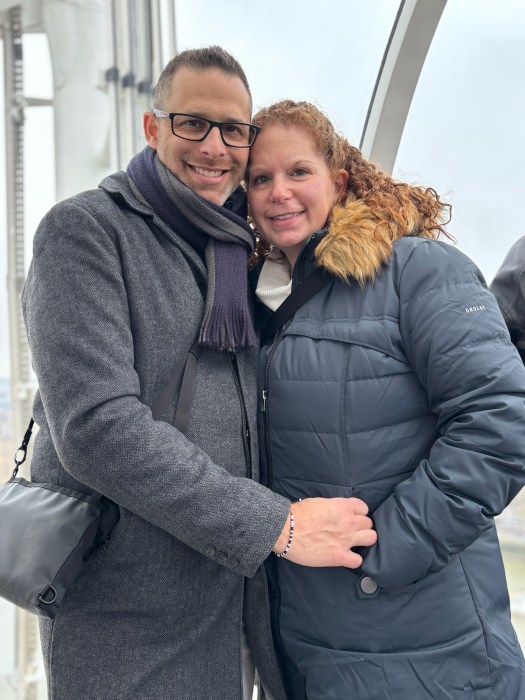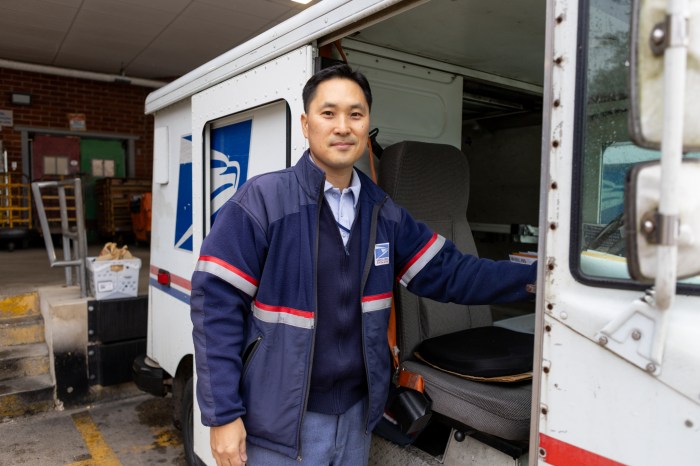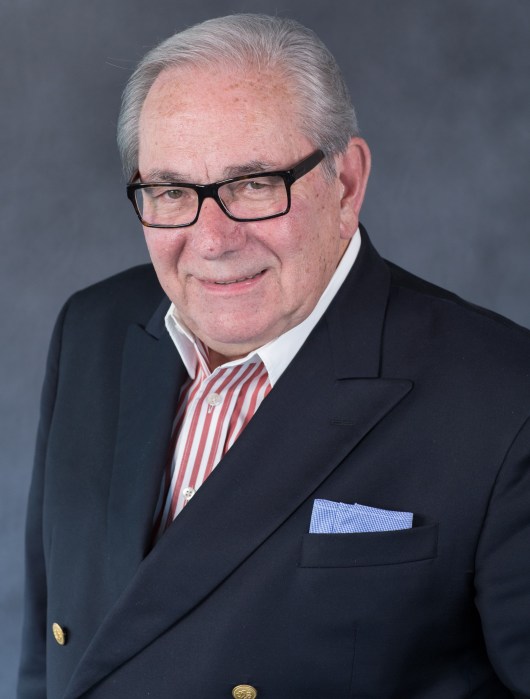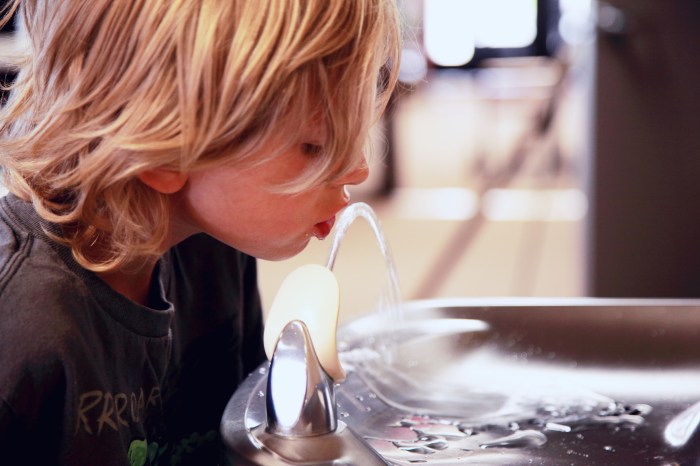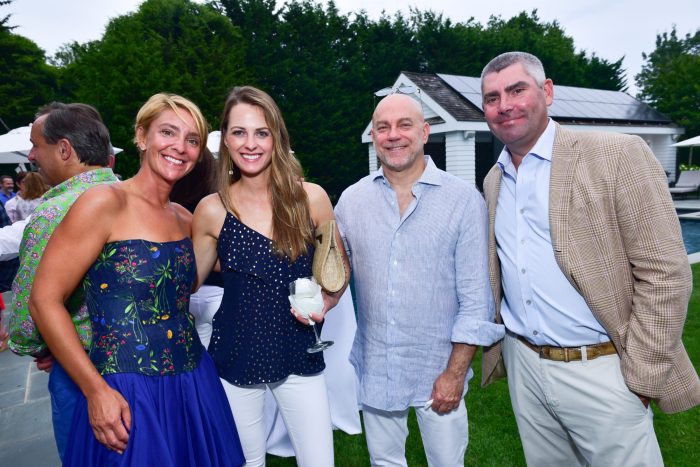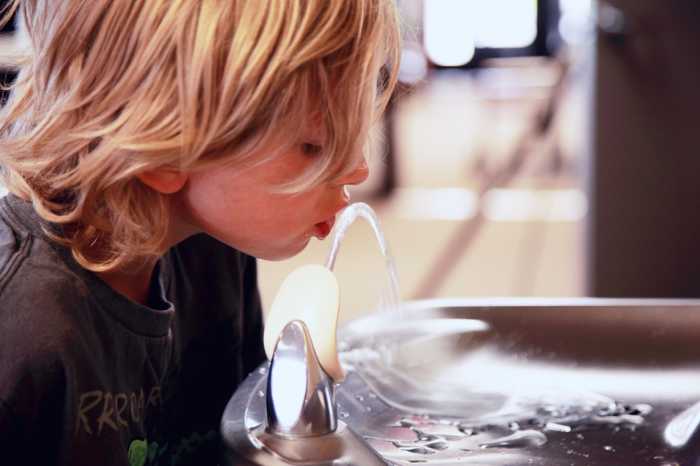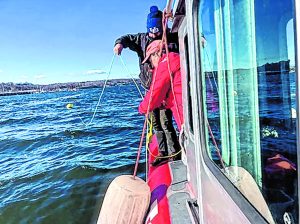
Friends of the Bay (FOB) has deployed several lines of kelp spores to cultivate kelp as a sustainable means of supporting the environment and the economy of Oyster Bay.
Placing the lines in two areas of Oyster Bay on Sunday, Dec. 29, was part of a project with the Moore Family Charitable Foundation and its Lazy Point Farms LLC.
The kelp spores on the lines will grow into a brown seaweed known colloquially as “sugar kelp” that will continue to grow throughout the winter and be harvested next May.
FOB will be responsible for managing the two cultivation sites, collecting data on the growth and condition of the kelp, and water-quality monitoring. The Moore foundation is supporting the effort with a $2,000 donation to FOB.
Mitch Kramer, owner of TowBoatU.S. in Oyster Bay and FOB vice president, provided one of his boats, and he, employee Nick Casella and two volunteers, Leo Imperial and his 15-year-old son James, deployed the kelp lines. The materials from Lazy Point Farms were delivered to Oyster Bay from West Sayville by David Gugerty, a state Supreme Court justice from Bayville, who has been involved in kelp-growing experiments in the village for several years.
Kramer said the kelp spores came affixed to cotton strings that are wrapped around a cylinder “like a spool of kite string.” The rope on which the kelp is grown is fed through the cylinder and the cotton line with the spores is transferred from the cylinder and wrapped around the rope.
“This partnership with Lazy Point Farms will allow us to gather valuable information about kelp and its impact on water quality,” FOB Executive Director Heather Johnson said. “With kelp being grown at other locations on Long Island, it will be interesting to see all the results.”
Wendy Moore, president of the foundation and executive director of Lazy Point Farms, commented that “we are grateful for the chance to support Friends of the Bay’s interest in growing sugar kelp as part of their program. We think sugar kelp has the potential to benefit Long Island communities in so many ways.”
Sugar kelp is gaining recognition as a sustainable aquaculture crop that can provide nutritional as well as commercial and economic benefits. It is a winter crop that can be grown in the same areas leased by shellfish growers. It requires no chemicals or fertilizer to grow and provides important ecosystem services including the removal of excess nutrients and carbon dioxide from the surrounding waters in addition to providing a safe environment for fish and other small marine organisms.
Once the kelp is harvested, it can be used as a food source, a fertilizer, to make packaging materials and as an ingredient in cosmetics. The process of growing and harvesting kelp can also provide jobs for the local economy.
For more information, contact Heather Johnson at 516-922-6666 or h.johnson@friendsofthebay.org.




